Top DevOps Security Platforms Comparison
By Lucy Chen | Published: 2025-04-08 | Category: Devops Security
About Devops Security
DevOps security, often called DevSecOps, involves integrating security testing and protection practices seamlessly throughout the software development lifecycle (SDLC) and DevOps workflows. The goal is to automate security checks early and often, making security a shared responsibility.
Scoring Criteria
- → Feature Breadth
- → Integration & Automation
- → Vulnerability Management & Remediation
- → Ease of Use & Developer Experience
- → Scalability & Performance
- → Reporting & Compliance
- → Pricing & Value
The Best Devops Security
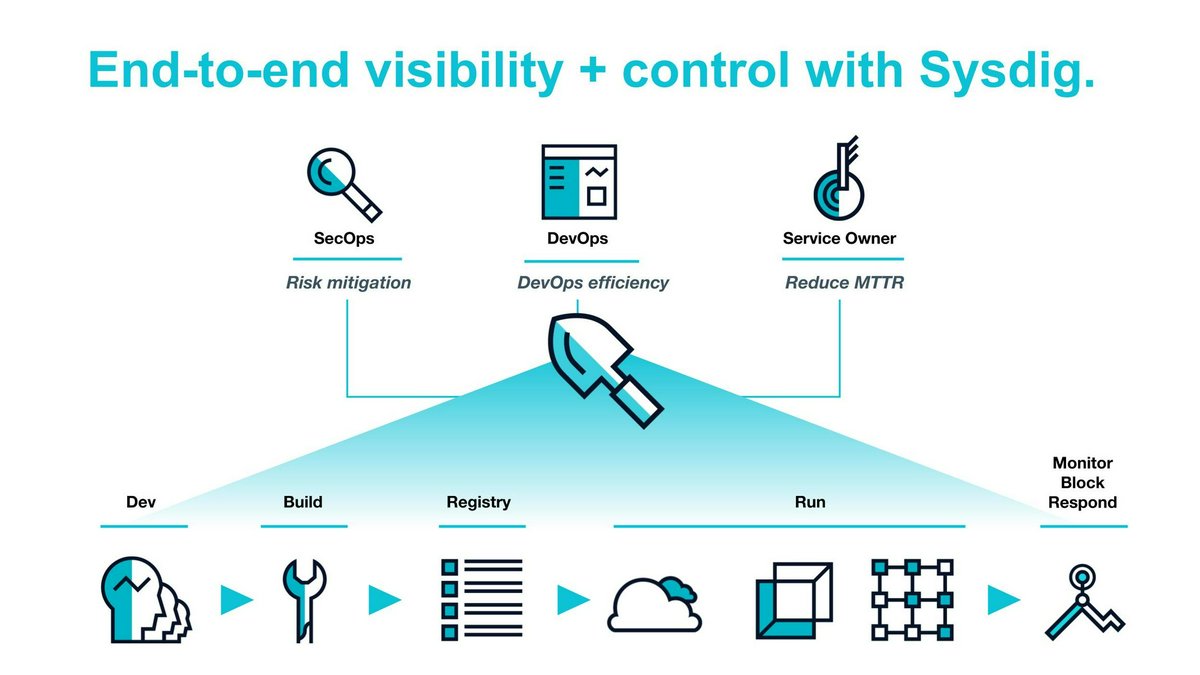 #11
#11
Sysdig Secure
By Sysdig
A cloud-native security platform built on open source Falco, offering container security, runtime threat detection, CSPM, and forensics.
Platforms & Use Cases
Platforms: Cloud, Kubernetes, Containers, Hosts
Best For: Container Security, Runtime Threat Detection, CSPM, Kubernetes Security, Compliance, Incident Response
Key Features
- ✓Image Scanning: Scans container images for vulnerabilities and misconfigurations in CI/CD and registries.
- ✓Runtime Security (Falco): Real-time threat detection based on system calls and Kubernetes audit logs.
- ✓Cloud Security Posture Management (CSPM): Monitors cloud accounts for misconfigurations, compliance violations, and threats.
- ✓Kubernetes Security Posture Management (KSPM): Provides security posture management specifically for Kubernetes environments.
- ✓Incident Response & Forensics: Captures detailed activity data for investigation after security events.
Scorecard (Overall: 7.7 / 10.0)
Pricing
Sysdig Secure Essentials
Contact Vendor
- Free tier with basic scanning & Falco runtime
Limitations: Limited scale and features
Sysdig Secure
$-1.00 / Annual
- Full platform capabilities, priced per node/host
Limitations: Custom quote based on environment size
Pros
- + Strong runtime security based on Falco
- + Deep visibility into container and Kubernetes environments
- + Good CSPM and KSPM capabilities
- + Open source foundation
- + Free tier available
Cons
- - Primarily focused on runtime and cloud-native environments, not traditional AppSec (SAST/DAST)
- - Can have a learning curve
- - Remediation guidance can be less direct than developer-first tools
Verdict
"A powerful cloud-native security platform, particularly strong in runtime threat detection and Kubernetes security, leveraging the open-source power of Falco."
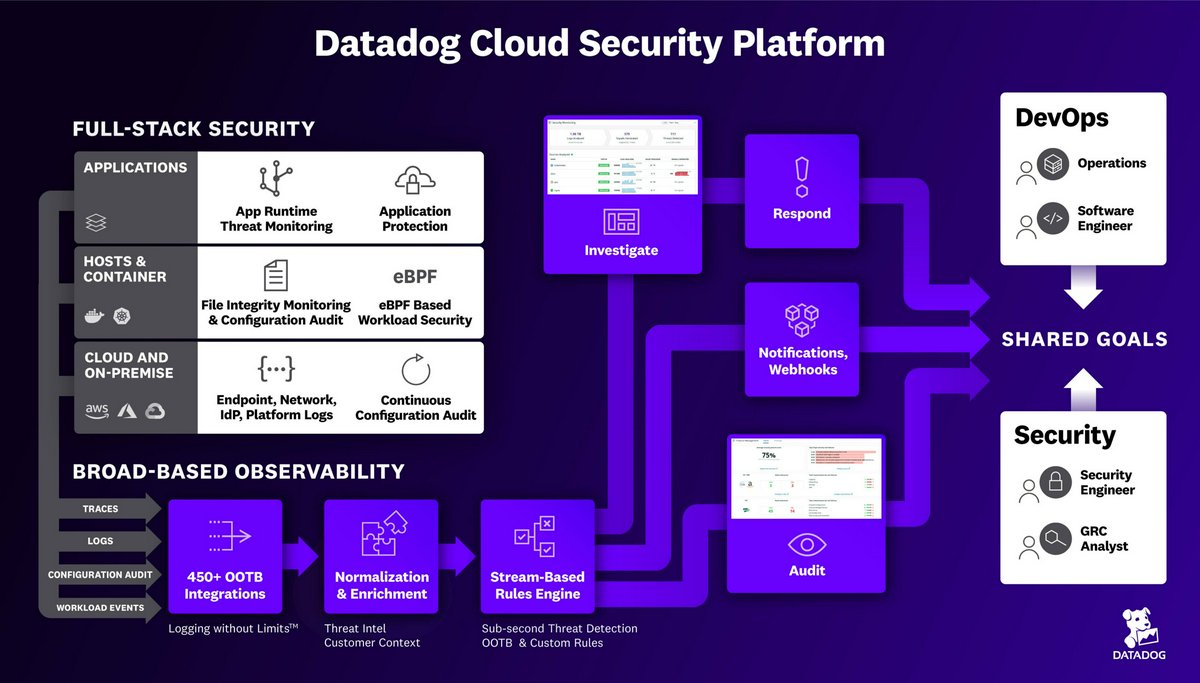 #10
#10
Datadog Security Platform
By Datadog
Extends Datadog's observability platform with integrated security monitoring, threat detection, and posture management capabilities.
Platforms & Use Cases
Platforms: Cloud, Hybrid
Best For: Cloud Security Monitoring, CSPM, CWP, Application Security Monitoring (RASP/IAST-like), SIEM, Log Management
Key Features
- ✓Application Security Management (ASM): Detects application-level threats and vulnerabilities using runtime analysis (RASP/IAST).
- ✓Cloud Security Posture Management (CSPM): Scans cloud environments for misconfigurations and compliance violations.
- ✓Cloud Workload Security (CWS): Real-time threat detection for hosts and containers based on kernel-level monitoring.
- ✓Security Monitoring (SIEM): Ingests, analyzes, and alerts on logs and security signals from across the stack.
- ✓Unified Platform: Combines security data with observability metrics, traces, and logs.
Scorecard (Overall: 7.4 / 10.0)
Pricing
Modular Pricing
$-1.00 / Monthly/Annual
- Each security module (CSPM, CWS, ASM, SIEM) priced separately
Limitations: Pricing based on hosts, analyzed logs, resources scanned, etc., Can become expensive with multiple modules
Pros
- + Seamless integration with Datadog observability data
- + Strong runtime security capabilities (CWS, ASM)
- + Unified view across security and operations
- + Good visualization and dashboarding
Cons
- - Not a traditional SAST/SCA/DAST tool
- - Focus is more on runtime and cloud infrastructure than pre-deployment code scanning
- - Pricing can escalate quickly with multiple modules and high data volumes
Verdict
"A compelling option for organizations already using Datadog for observability, providing strong runtime security, CSPM, and SIEM capabilities tightly integrated with operational data."
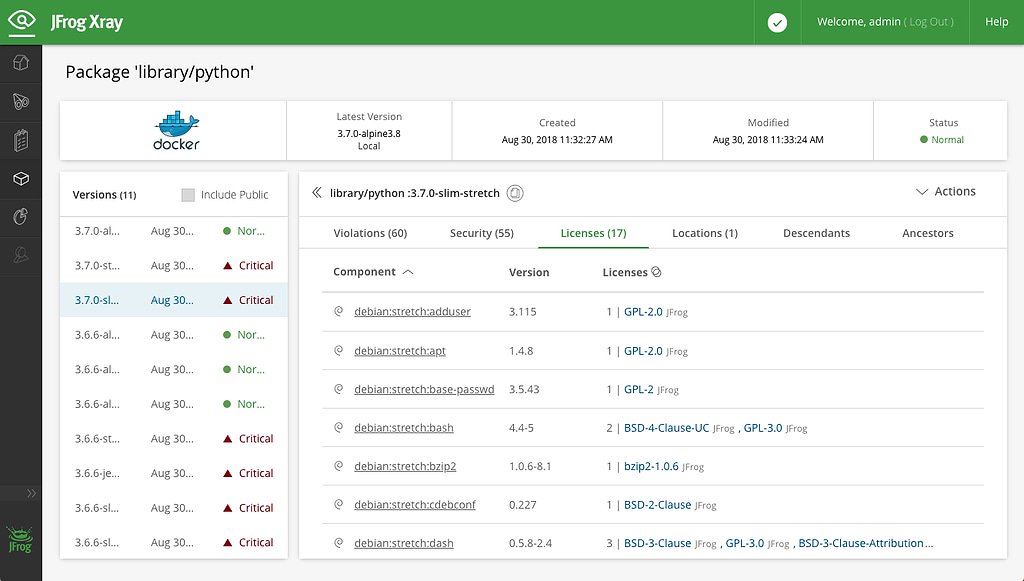 #9
#9
JFrog Xray
By JFrog
Part of the JFrog DevOps platform, Xray performs universal artifact analysis, focusing on SCA, license compliance, and security vulnerabilities in binaries.
Platforms & Use Cases
Platforms: Cloud, Self-managed
Best For: SCA, License Compliance, Container Security, IaC Security, Software Bill of Materials (SBOM)
Key Features
- ✓Universal Artifact Analysis: Deep recursive scanning of artifacts and dependencies across various package types.
- ✓Software Composition Analysis (SCA): Identifies open source vulnerabilities and license issues.
- ✓Container Image Scanning: Scans container layers for security vulnerabilities.
- ✓Operational Risk & Governance: Enforces policies based on component security status or license type.
- ✓Integration with Artifactory: Tightly integrated with JFrog Artifactory for artifact management and security gating.
Scorecard (Overall: 7.1 / 10.0)
Pricing
Part of JFrog Platform Subscription
$-1.00 / Annual
- Included in Pro X, Enterprise X, and Enterprise+ tiers
Limitations: Requires JFrog Platform subscription, Pricing based on data transfer, storage, server count
Pros
- + Deep integration with JFrog Artifactory
- + Strong focus on binary and artifact analysis (SCA)
- + Good license compliance capabilities
- + Supports a wide range of package types
Cons
- - Primarily focused on artifact scanning (SCA, Container), not a full AppSec suite (no SAST/DAST)
- - Best value when already using the JFrog Platform
- - User interface can be complex
Verdict
"Ideal for organizations using JFrog Artifactory who need robust SCA, license compliance, and artifact security integrated into their binary management workflow."
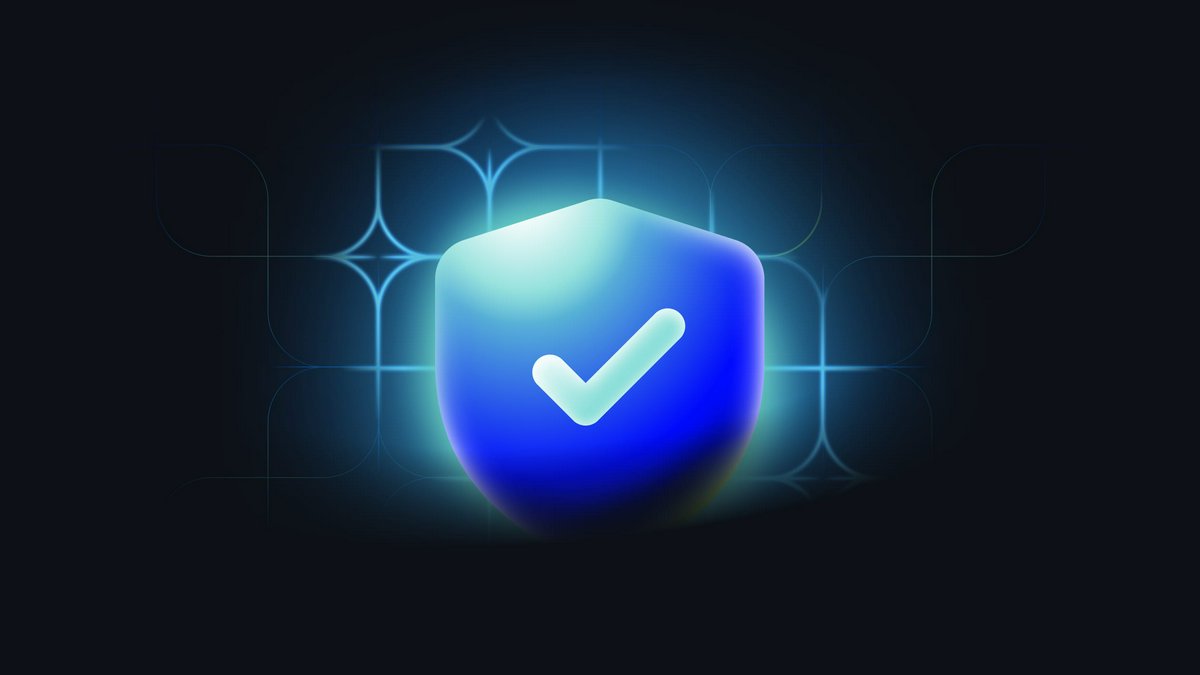 #8
#8
GitHub Advanced Security
By GitHub
An add-on for GitHub Enterprise providing integrated code scanning (CodeQL), secret scanning, and dependency review capabilities.
Platforms & Use Cases
Platforms: Cloud (GitHub.com), Self-managed (GitHub Enterprise Server)
Best For: SAST (Code Scanning), Secret Scanning, SCA (Dependency Review), Supply Chain Security
Key Features
- ✓Code Scanning (CodeQL): Powerful semantic code analysis (SAST) engine to find vulnerabilities.
- ✓Secret Scanning: Detects secrets (e.g., API keys, tokens) checked into repositories.
- ✓Dependency Review: Identifies vulnerable dependencies and license changes in pull requests.
- ✓Supply Chain Security Features: Includes security advisories, dependency graph, and Dependabot alerts/updates.
- ✓Native GitHub Integration: Security integrated directly into the developer workflow (pull requests, actions).
Scorecard (Overall: 7.7 / 10.0)
Pricing
Free (Public Repos)
Contact Vendor
- Code scanning, secret scanning, Dependabot for public repositories
Limitations: Public repositories only
GitHub Enterprise
$-1.00 / Annual per user
- Base Enterprise features
Limitations: Advanced Security is an add-on
Advanced Security Add-on
$-1.00 / Annual per active committer
- Code Scanning, Secret Scanning, Dependency Review for private repositories
Limitations: Additional cost on top of Enterprise license (approx $49/user/month list price)
Pros
- + Excellent integration within the GitHub ecosystem
- + Powerful CodeQL SAST engine
- + Great developer experience
- + Strong secret scanning and dependency management features
Cons
- - Requires GitHub Enterprise
- - Advanced Security is an extra cost
- - Fewer scanning types compared to broad AppSec platforms (no DAST, IAST, Container Scan natively)
- - Reporting capabilities less mature than dedicated platforms
Verdict
"A superb choice for organizations heavily utilizing GitHub Enterprise, offering seamless and developer-friendly SAST, secret scanning, and dependency management."
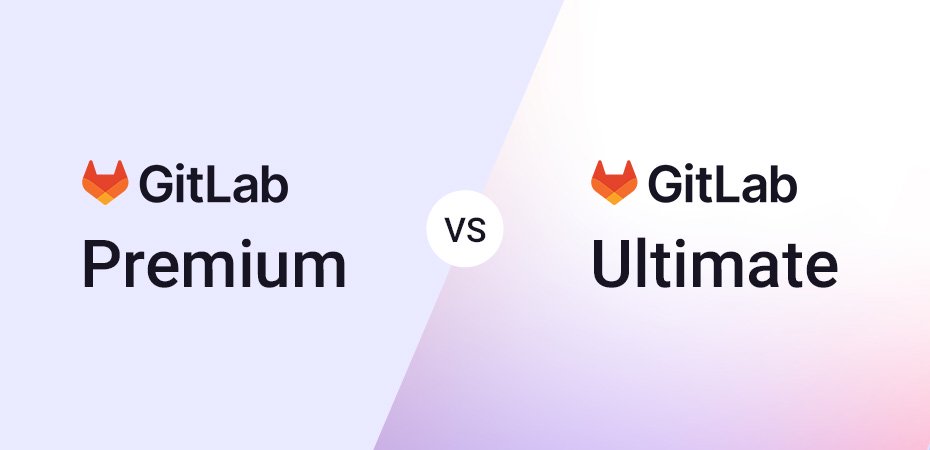 #7
#7
GitLab Ultimate
By GitLab
A complete DevOps platform that includes integrated security scanning capabilities (SAST, DAST, SCA, Secret Detection, etc.) within the CI/CD pipeline.
Platforms & Use Cases
Platforms: Cloud (SaaS), Self-managed
Best For: CI/CD, Source Code Management, SAST, DAST, SCA, Secret Detection, Container Scanning, Fuzz Testing, Compliance Management
Key Features
- ✓Integrated Security Scans: SAST, DAST, Dependency Scanning, Container Scanning, Secret Detection embedded within CI/CD pipelines.
- ✓Security Dashboards: Provides a unified view of vulnerabilities across projects and groups.
- ✓Vulnerability Management: Track, manage, and triage vulnerabilities directly within GitLab.
- ✓Compliance Frameworks: Helps manage and enforce compliance controls.
- ✓Single Platform: Combines development, operations, and security tooling in one interface.
Scorecard (Overall: 7.7 / 10.0)
Pricing
Free
Contact Vendor
- SCM
- CI/CD
- Limited storage/minutes
Limitations: No advanced security features
Premium
$29.00 / Monthly per user
- Faster CI/CD
- Project Management
- Basic Security (SAST Static Analysis)
Limitations: Limited security features
Ultimate
$99.00 / Monthly per user
- Advanced Security Testing (SAST, DAST, SCA, etc.)
- Compliance
- Portfolio Management
- Value Stream Management
Limitations: Highest cost per user
Pros
- + Seamless integration of security into the DevOps workflow
- + Single platform simplifies toolchain
- + Broad range of security scanning types included
- + Good value if already using GitLab for CI/CD
Cons
- - Security features primarily tied to Ultimate tier
- - Maturity of some security tools may lag behind specialized vendors
- - Can promote vendor lock-in
Verdict
"An excellent option for organizations already invested in the GitLab ecosystem, offering tightly integrated security capabilities directly within the familiar DevOps platform."
 #6
#6
SonarQube / SonarCloud
By SonarSource
A leading platform for continuous code quality and code security, helping developers write cleaner and safer code.
Platforms & Use Cases
Platforms: On-premise (SonarQube), Cloud (SonarCloud)
Best For: SAST, Code Quality Analysis, Security Hotspot Review, Limited SCA
Key Features
- ✓Static Code Analysis (SAST): Detects bugs, vulnerabilities, and code smells in over 25 programming languages.
- ✓Security Hotspot Detection: Highlights security-sensitive pieces of code requiring review.
- ✓Quality Gates: Enforces code quality and security standards in CI/CD pipelines.
- ✓IDE Integration (SonarLint): Provides real-time feedback to developers in their IDE.
- ✓Reporting: Tracks code quality metrics and security vulnerabilities over time.
Scorecard (Overall: 7.9 / 10.0)
Pricing
Community Edition (SonarQube)
Contact Vendor
- Core SAST/Code Quality for main branch
- Open Source
Limitations: Limited language support, No portfolio management
Developer Edition (SonarQube)
$-1.00 / Annual
- Branch analysis
- Pull request decoration
- Security Hotspots
Limitations: Starts at ~$150/yr per instance for 100k LOC
Enterprise Edition (SonarQube)
$-1.00 / Annual
- Portfolio Management
- Reporting
- Security Reports
- More Languages
Limitations: Starts at ~$20k/yr per instance
SonarCloud
Contact Vendor
- Free for open source projects
- Paid tiers based on LOC for private projects
Limitations: Cloud-only
Pros
- + Excellent for code quality and SAST
- + Strong developer focus with IDE integration
- + Good integration with CI/CD pipelines
- + Free and affordable options available
Cons
- - Limited capabilities beyond code analysis (e.g., basic SCA, no DAST/Container)
- - Security reporting less comprehensive than dedicated AppSec platforms in lower tiers
- - Enterprise features required for full security reporting
Verdict
"A fantastic tool for integrating static code analysis and quality checks directly into the development workflow, offering great value and developer experience, particularly strong on the 'Sec' within Dev."
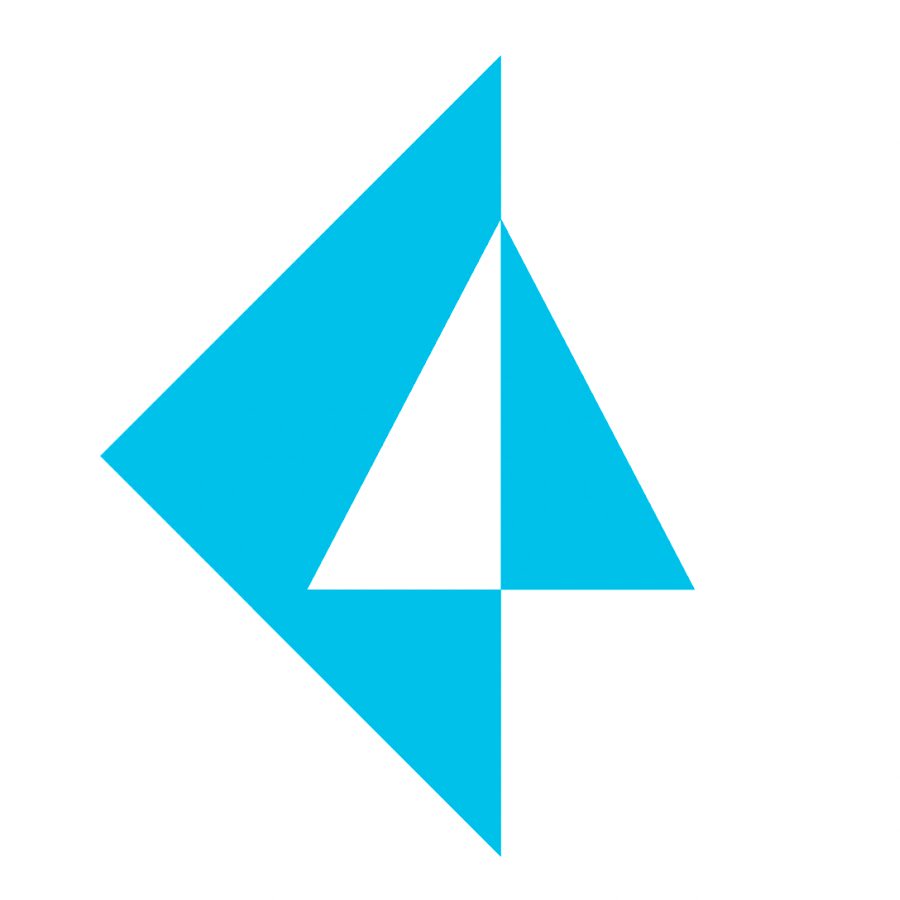 #5
#5
Prisma Cloud
By Palo Alto Networks
A comprehensive Cloud Native Application Protection Platform (CNAPP) securing applications from code to cloud across multi-cloud environments.
Platforms & Use Cases
Platforms: Cloud (AWS, Azure, GCP, Oracle, Alibaba), On-premise (limited), Containers, Serverless
Best For: CSPM, Cloud Workload Protection (CWP), Cloud Infrastructure Entitlement Management (CIEM), SCA, IaC Security, API Security, WAAP
Key Features
- ✓Cloud Security Posture Management (CSPM): Monitors cloud environments for misconfigurations and compliance violations.
- ✓Cloud Workload Protection Platform (CWPP): Secures hosts, containers, and serverless functions at runtime.
- ✓IaC Security: Scans IaC templates for security issues pre-deployment.
- ✓Software Composition Analysis (SCA): Identifies vulnerabilities in open source dependencies within code and containers.
- ✓Web Application and API Protection (WAAP): Protects web applications and APIs from threats.
Scorecard (Overall: 7.7 / 10.0)
Pricing
Credits-Based
$-1.00 / Annual
- Access to modules based on credits consumed
- Flexible consumption model
Limitations: Pricing depends heavily on usage and modules selected
Pros
- + Extremely broad CNAPP capabilities
- + Strong integration with major cloud providers
- + Unified platform for diverse cloud security needs
- + Backed by Palo Alto Networks threat intelligence
Cons
- - Can be very complex and overwhelming
- - High cost, especially at scale
- - Some developer-facing features (like SCA) less mature than specialized tools
Verdict
"A leading, comprehensive CNAPP solution ideal for large organizations needing extensive cloud security posture, workload protection, and network security across multi-cloud environments."
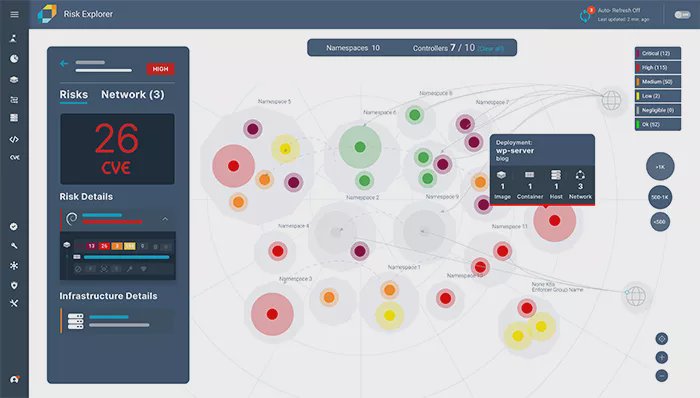 #4
#4
Aqua Security Platform
By Aqua Security
A full-lifecycle cloud-native security platform focusing on container security, Kubernetes security, serverless security, and VM security.
Platforms & Use Cases
Platforms: Cloud, On-premise, Hybrid
Best For: Container Security, Kubernetes Security, Serverless Security, CSPM, VM Security, Supply Chain Security, DAST for cloud-native apps
Key Features
- ✓Container Image Scanning: Scans images for vulnerabilities, malware, and misconfigurations in registries and CI/CD pipelines.
- ✓Runtime Protection: Provides drift prevention and security policies for running containers and hosts.
- ✓Kubernetes Security: Offers admission control, auditing, and runtime protection for Kubernetes environments.
- ✓Serverless Security: Secures serverless functions (e.g., AWS Lambda).
- ✓Dynamic Threat Analysis (DTA): Analyzes container image behavior in a sandbox to detect hidden malware.
Scorecard (Overall: 7.6 / 10.0)
Pricing
Team
$-1.00 / Annual
- Core scanning & runtime features
Limitations: Scale/feature limits
Advanced
$-1.00 / Annual
- Broader platform capabilities
- Advanced runtime
Limitations: Based on nodes/usage
Enterprise
$-1.00 / Annual
- Full platform access
- Premium support
Limitations: Custom quote
Pros
- + Market leader in container and Kubernetes security
- + Comprehensive cloud-native security features
- + Strong runtime protection capabilities
- + Good integration with cloud environments
Cons
- - Primarily focused on cloud-native, less emphasis on traditional AppSec (SAST/DAST)
- - Can be complex to deploy and manage fully
- - Can be expensive
Verdict
"An excellent choice for organizations heavily invested in containers, Kubernetes, and cloud-native architectures seeking end-to-end security for those environments."
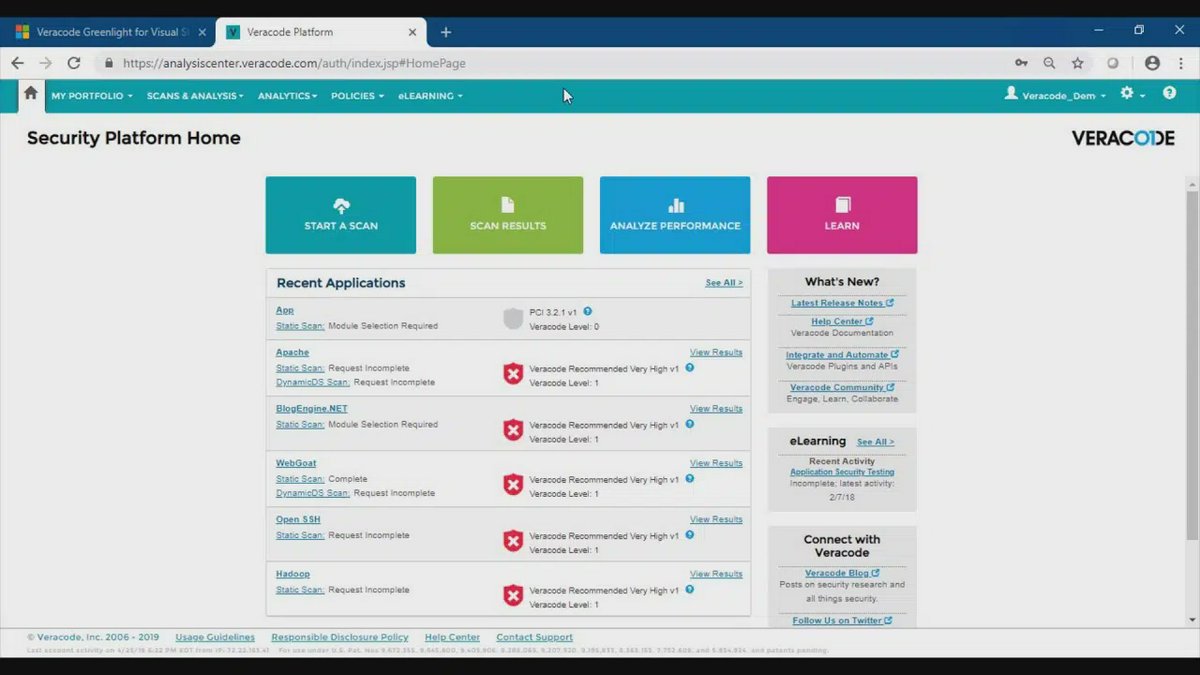 #3
#3
Veracode Security Platform
By Veracode
A cloud-native platform offering a broad set of application analysis tools including SAST, DAST, SCA, and manual penetration testing.
Platforms & Use Cases
Platforms: Cloud (SaaS)
Best For: SAST, DAST, SCA, IAST (limited), Manual Penetration Testing, Developer Training
Key Features
- ✓Static Analysis (SAST): Cloud-based static analysis without requiring source code upload.
- ✓Dynamic Analysis (DAST): Scans running web applications for vulnerabilities.
- ✓Software Composition Analysis (SCA): Identifies vulnerabilities in open source components.
- ✓Unified Platform: Provides a single interface for managing various AppSec testing results.
- ✓Developer Enablement: Offers IDE scans, remediation guidance, and security training modules.
Scorecard (Overall: 7.6 / 10.0)
Pricing
Various Editions
$-1.00 / Annual
- Modules purchased based on need (SAST, DAST, SCA)
- Platform access
Limitations: Pricing based on application count and scan frequency
Pros
- + Mature platform with proven track record
- + Strong SAST and DAST capabilities
- + Good reporting for compliance mandates
- + Integrated developer training
Cons
- - Primarily SaaS-based, limited on-premise options
- - Can be perceived as less developer-friendly than some newer tools
- - Pricing model can be complex
Verdict
"A well-established choice for organizations needing comprehensive, policy-driven application security testing, particularly strong in SAST, DAST, and compliance."
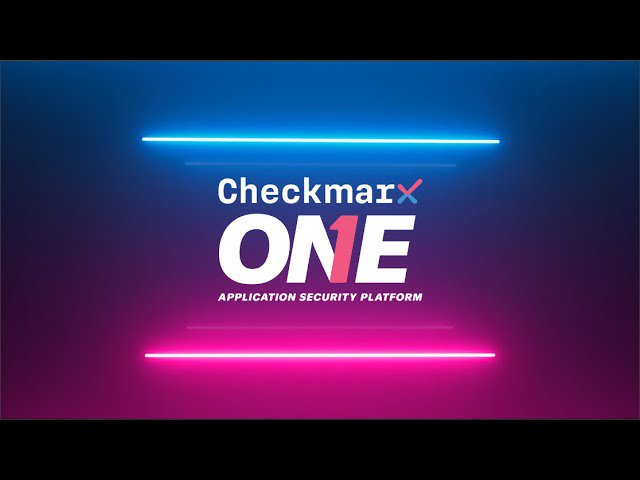 #2
#2
Checkmarx One
By Checkmarx
An extensive application security testing platform offering SAST, SCA, IAST, IaC scanning, API security, and supply chain security.
Platforms & Use Cases
Platforms: Cloud, On-premise, Hybrid
Best For: SAST, SCA, IAST, IaC Security, API Security, Supply Chain Security, Container Security
Key Features
- ✓Static Application Security Testing (SAST): Industry-leading SAST engine with broad language support and vulnerability detection.
- ✓Software Composition Analysis (SCA): Identifies open source vulnerabilities and license compliance issues.
- ✓Infrastructure as Code (IaC) Scanning: Secures cloud-native applications by scanning IaC files.
- ✓API Security: Discovers and tests APIs for security vulnerabilities.
- ✓Supply Chain Security: Provides visibility and control over the software supply chain.
Scorecard (Overall: 7.9 / 10.0)
Pricing
Essentials
$-1.00 / Annual
- Core SAST/SCA
Limitations: Limited features/scans
Advanced
$-1.00 / Annual
- Expanded capabilities (e.g., IaC, API Security)
Limitations: Based on usage/modules
Enterprise
$-1.00 / Annual
- Full platform access
- Premium support
Limitations: Custom quote
Pros
- + Comprehensive suite of AppSec tools
- + Mature and powerful SAST engine
- + Strong reporting and compliance features
- + Flexible deployment options
Cons
- - Can be complex to manage and configure
- - Higher price point compared to some competitors
- - Developer experience can be less intuitive than newer platforms
Verdict
"A robust and comprehensive platform ideal for large enterprises needing a wide range of mature application security testing capabilities and strong compliance reporting."
View Top Ranked Software
Watch a short ad to unlock the details for the #1 ranked software.
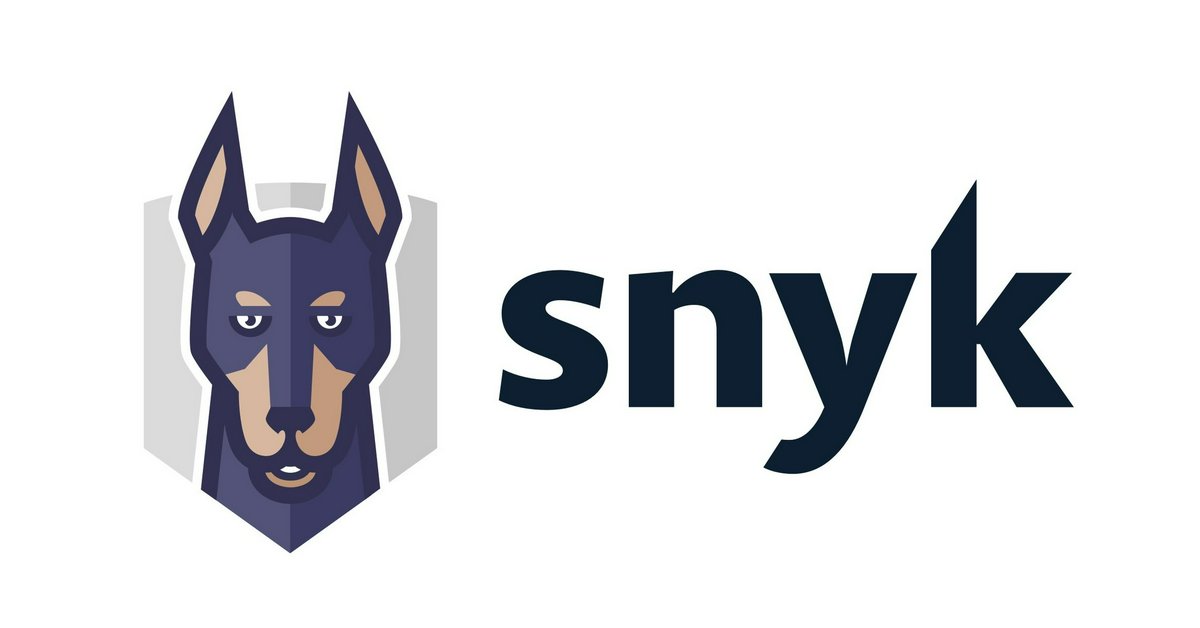 #1
#1
Snyk
By Snyk
A developer-focused security platform for finding and fixing vulnerabilities in open source dependencies, code, containers, and infrastructure as code.
Platforms & Use Cases
Platforms: Cloud, On-premise, CLI, IDE Plugins, CI/CD Integrations
Best For: SCA, SAST, Container Security, IaC Security, Cloud Security Posture Management (CSPM)
Key Features
- ✓Open Source Security (SCA): Finds and fixes vulnerabilities and license issues in open source dependencies.
- ✓Code Security (SAST): Analyzes application code for security flaws.
- ✓Container Security: Scans container images for vulnerabilities.
- ✓Infrastructure as Code (IaC) Security: Identifies misconfigurations in Terraform, Kubernetes, CloudFormation files.
- ✓Developer-First Tooling: Integrates directly into IDEs, Git repositories, and CI/CD pipelines with actionable remediation advice.
Scorecard (Overall: 8.3 / 10.0)
Pricing
Free
Contact Vendor
- Limited Scans (SCA, Code, IaC, Container)
- IDE Integration
Limitations: Scan limits, Limited reporting
Team
$-1.00 / Annual
- Increased scan limits
- CI/CD Integration
- Basic Reporting
Limitations: User limits, Feature caps
Enterprise
$-1.00 / Annual
- Unlimited scans
- Advanced Reporting & Compliance
- Priority Support
- Full platform capabilities
Limitations: Custom pricing
Pros
- + Excellent developer experience
- + Strong SCA and IaC capabilities
- + Good integration options
- + Actionable remediation guidance
Cons
- - SAST capabilities are newer compared to competitors
- - Enterprise pricing can be high
- - Reporting could be more robust in lower tiers
Verdict
"A top choice for organizations prioritizing developer experience and seeking strong SCA, Container, and IaC security integrated early in the SDLC."

Final Thoughts
The DevOps Security landscape offers diverse solutions, ranging from developer-centric tools focused on code and dependencies (Snyk, SonarQube) to comprehensive AppSec platforms (Checkmarx, Veracode) and broad Cloud Native Application Protection Platforms (Prisma Cloud, Aqua, Sysdig). Integrated platform suites like GitLab Ultimate and GitHub Advanced Security provide convenience for existing users, while observability platforms like Datadog are extending into security. Choice depends on primary use cases (code scanning, container security, cloud posture), existing toolchains, developer integration needs, and budget.